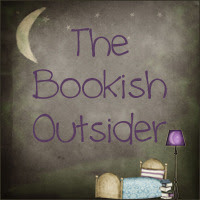I'm a huge fan of Karen Maitland's novels so jumped at the chance to feature her on the blog in honor of her new book, The Raven's Head, out today! If you're a fan of historical fiction with a supernatural twist then these are the books for you.
‘Fried Mice and Mouldy Buns’ – by Karen Maitland
I weave a lot of medieval superstitions and folk-remedies into my novels, because I think that reflects the way people lived and thought in the Middle Ages. But it’s easy to mock their superstitions and cures, not least because some are pretty revolting.
The medieval mandrake in my novel THE GALLOWS CURSE says – ‘mice are particularly efficacious when stewed, roasted, baked or fried, to strengthen sickly children, cure them of colds, fits, the pox and fevers, or prevent them from wetting the bed.’ I thought this medieval remedy had been abandoned centuries ago, but when I was interviewing an elderly lady in Lincolnshire about her life, she happened to mention that she’d always given her children fried mice when they had croup or bad coughs, though, she added she always covered the mice in ‘a nice drop of gravy’ and told the children it was chicken, so that they’d eat it.
In THE RAVEN’S HEAD a medieval carter becomes terrified when he thinks he hears the Seven Whistlers calling to his passenger and promptly throws him off the cart, fearing the man is doomed to die. The seven birds with a plaintive or eerie cry were believed to be wandering human souls whose piercing cries warned of death and disaster. As late as 1855 a newspaper carried a report that miners on their way to work turned back, because they’d heard the seven whistlers. All the miners in that colliery flatly refused to go down the mine that day, saying the birds were warning there would be a mining disaster.
But some superstitions were based on accurate observation. They had no knowledge of bacteria, but did know that honey helped to heal wounds and we now that honey contains antibacterial properties. Medieval physicians and surgeons were skilled at surgical operations, and, though they didn’t understand how it worked in modern scientific terms, they knew that used instruments cleaned with water in which thyme had been boiled led to fewer wounds turning ‘foul.’ They often burned thyme and other herbs in a sick room to drive away evil spirits and bad humours which were poisoning the air, but we now know the herbs they burned have antiseptic properties, so they would have worked.
Another medieval superstition was that a hot-cross bun from a batch baked on Good Friday should be left in the house for the whole year to protect the family from evil. (People doing house renovations still occasionally find them today.) In the Middle Ages, if anyone had a stomach upset they would grate a bit off the dried bun, which would by then be mouldy, and mix it with milk or water and swallow it as a cure. Perhaps our medieval ancestors had, through their superstition, stumbled on the use of antibiotics long before penicillin was discovered!
About the Author
Karen Maitland has recently
moved to the wonderful county of Devon and has a doctorate in
psycholinguists. She is fascinated by the myth and magic of the Middle
Ages, which she draws on for her novels. She experienced the medieval
lifestyle for real, when she worked for eighteen months in a rural
village in Nigeria, living without electricity, plumbing or sanitation.


















No comments:
Post a Comment
Comments are great so please feel free to leave one! If you leave a link to your blog I will come and visit your blog!